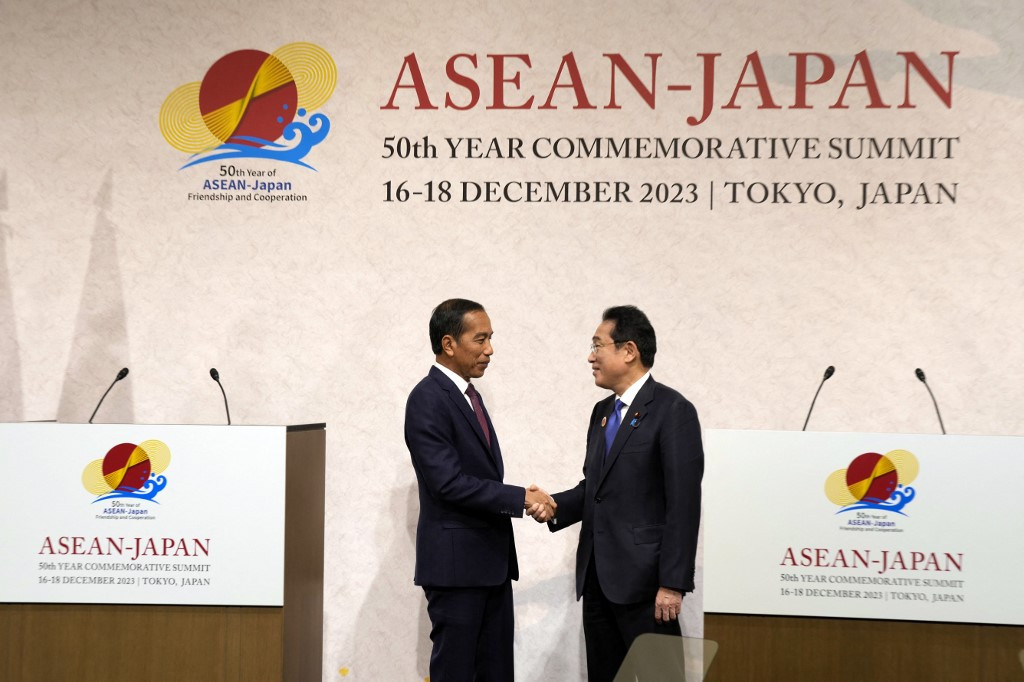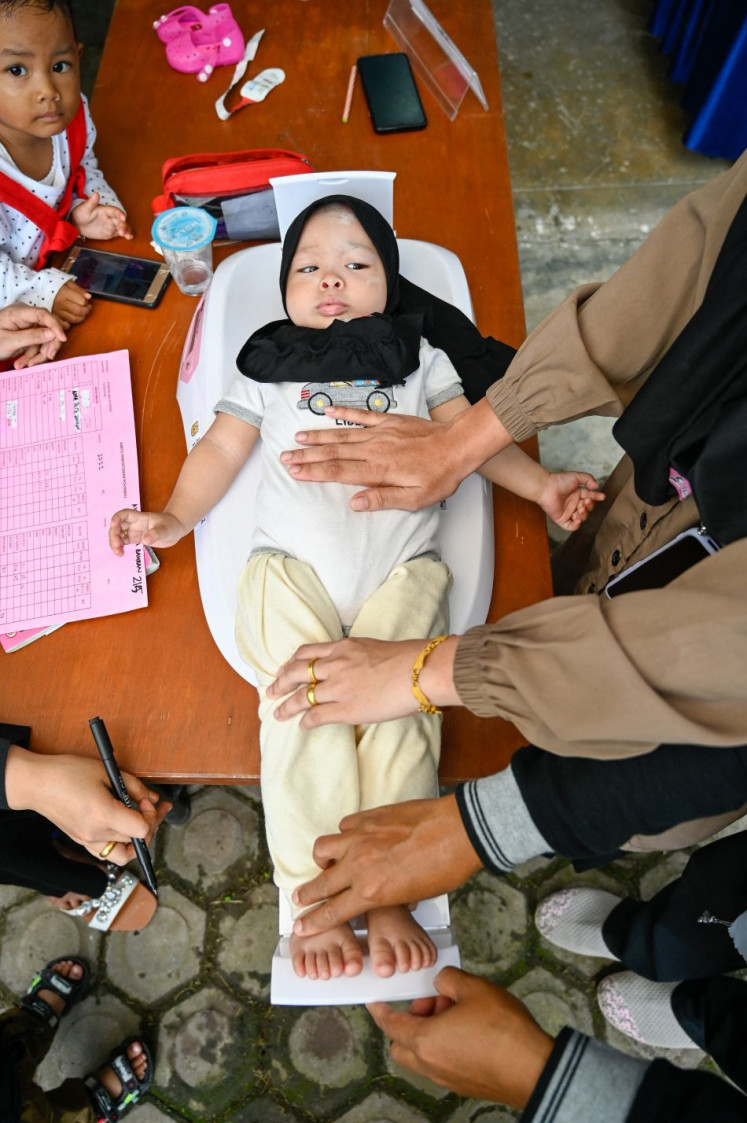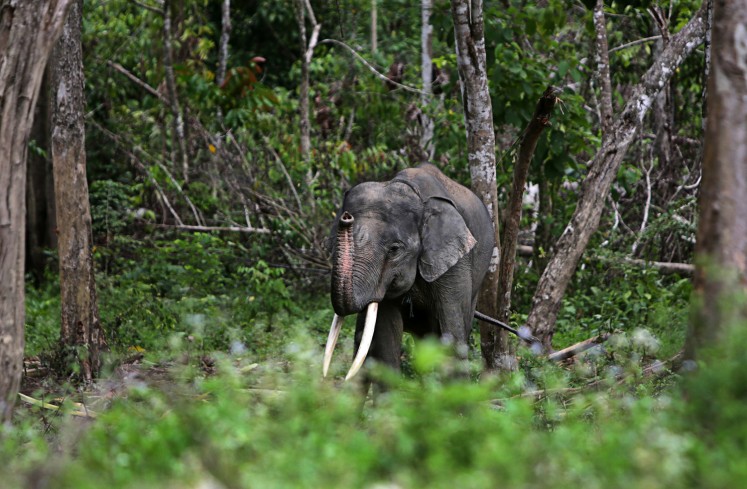Popular Reads
Top Results
Can't find what you're looking for?
View all search resultsPopular Reads
Top Results
Can't find what you're looking for?
View all search resultsSecuring ASEAN-Japan security ties
Even within limitations, there is ample room for ASEAN and Japan to enhance security cooperation, including in maritime security.
Change text size
Gift Premium Articles
to Anyone
S
ecurity is increasingly becoming an important factor in the relationship between ASEAN and Japan, which in the past has been underwritten largely by economics and trade. The rapidly changing geopolitical landscape mandates it, and ASEAN and Japanese leaders recognized this in their 50th commemorative summit in Tokyo last weekend.
Their joint statement typically avoided mentioning the elephant in the room, but when they talked about enhancing security cooperation, and more specifically, maritime security, in the Indo-Pacific region, they obviously meant China.
Japan has a territorial dispute with China in the East China Sea, and several ASEAN countries have similar disputes with China in the South China Sea. In addition, the South China Sea is an important route for Japan’s trade with Europe, the Middle East and Africa.
Japan and ASEAN have a lot to talk about regarding security, given the brewing tensions in the South China Sea.
Realistically, ASEAN should not pin too much hope on expanding security ties with Japan. Many ASEAN countries do not necessarily view the threat of China in the same way Japan does. ASEAN still has faith in diplomacy and is pressuring Beijing to finalize negotiations and sign a binding code of conduct that renounces the use of force in settling territorial disputes in the South China Sea.
We also recognize that Japan’s Self Defense Force has some limitations in conducting military engagements abroad, even after the more liberal interpretations of Article 9 of the Japanese Constitution. On defense matters, Japan is still largely dictated by its alliance with the United States.
ASEAN has so far avoided having to choose sides in the growing rivalry between the US and China. Individually, some ASEAN countries do align with one of the two, but collectively ASEAN must maintain its neutrality, lest it loses its central role in the Indo-Pacific, which is well recognized by everyone, including the US, China and Japan.
Nevertheless, even within these limitations, there is ample room for ASEAN and Japan to enhance security cooperation, including in maritime security. Japan’s Free and Open Indo-Pacific Strategy may have been designed with an eye to countering the rise of China, but it tallies with the ASEAN Outlook on Indo-Pacific. Both recognize common prosperity as their strategic goal, by respecting international laws, including the United Nations Convention on the Law of the Sea.
Reflecting its security concerns in the changing geopolitical landscape, Japan this year launched the Official Security Assistance (OSA) cooperation framework, separate from the long-running and much larger Official Development Assistance (ODA), which has focused on economics and trade.
The Philippines, Malaysia, Bangladesh and Fiji were the first recipients of OSA funding this year. In fiscal year 2024, Japan plans to offer about 5 billion yen (US$34.1 million) to the Philippines, Vietnam, Indonesia, Papua New Guinea, Mongolia and Djibouti. Specifically, the program will provide defense equipment, such as satellite communication systems, radar equipment and patrol boats, and offer other forms of aid, such as building ports for military-civilian use, free of charge.
They may be paltry and token sums compared with the needs of most ASEAN countries in beefing up their defense capability, but the OSA funds are welcome symbolic gestures from ASEAN’s long-time and trusted friend.
By recognizing the limitations in security cooperation between Japan and ASEAN, whether collectively or individually, we know there is no better way of enhancing relations than the traditional way, that is through building our common economic prosperity. Nations build their security resilience first and foremost by building their economic resilience.
Japan may have lost its long-held position as the largest trading partner for ASEAN countries to China, but we have a long history of economic relationships that were not only mutually beneficial but have also built mutual trust over the past 50 years.
No amount of money, under ODA or OSA, can replace that.











